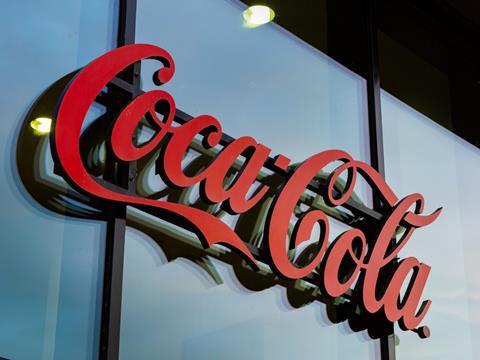
Earlier this month, Coca-Cola announced a significant shift in its sustainability strategy, scaling back on its widely publicized goal of using 50% recycled plastic in its packaging by 2030. While some have criticized this move as a step backward, others argue that it underscores a critical issue in sustainability efforts: the dangers of setting unrealistic goals that are disconnected from operational realities. Calvin Lakhan, Director of Circular Innovation Hub at York University’s Faculty of Environment and Urban Change, takes a closer look.
Coca-Cola’s recent recalibration highlights a broader challenge faced by policymakers and corporations alike. While bold targets can inspire innovation and drive momentum, when they are not aligned with existing infrastructure, market conditions, and technological capabilities, they risk becoming counterproductive.
For companies like Coca-Cola, the reputational risks of failing to meet such goals can be as damaging as the operational difficulties themselves.
As sustainability becomes an ever more urgent priority, policymakers and packaging professionals must take a hard look at how targets are set and implemented. The path forward requires balancing ambition with pragmatism, fostering collaboration, and grounding sustainability efforts in achievable realities to ensure lasting impact.
The need for realism in policy and practice
Coca-Cola’s experience exemplifies a growing disconnect between policy ambitions and practical realities. Many countries and regions are enacting policies that mandate the use of recycled materials, yet these regulations often fail to account for systemic bottlenecks.
For example, while Coca-Cola has invested heavily in recycled content, the global availability of food-grade recycled plastic remains limited. This gap is compounded by inconsistent recycling infrastructure, particularly in emerging markets where much of Coca-Cola’s operations are concentrated.
This situation is not unique to Coca-Cola. Across industries, companies face similar challenges when trying to align with regulatory demands that exceed current capabilities. Unrealistic targets create ripple effects: they force businesses into short-term, superficial compliance measures while diverting resources away from meaningful innovation.
For policymakers, such disconnects risk creating policies that appear strong on paper but falter in practice, eroding both progress and trust.
Realism is not about diminishing ambition—it’s about ensuring that goals are actionable. Policymakers must carefully assess infrastructure readiness, market dynamics, and technological capacity before setting regulations. Similarly, companies must advocate for incremental improvements that drive progress without undermining their credibility.
Reputational risks: The cost of overpromising
For companies like Coca-Cola, revising sustainability goals is not just a logistical decision—it’s a reputational risk. High-profile commitments to ambitious targets are public declarations that shape consumer trust, investor confidence, and brand identity. When those commitments are unmet or abandoned, the backlash can be swift and far-reaching.
Unrealistic sustainability targets leave companies vulnerable to accusations of greenwashing. This erodes consumer confidence not just in the company but also in broader sustainability efforts. Coca-Cola’s revised targets may have been necessary from an operational standpoint, but they have also reignited criticism of its role in plastic pollution and raised questions about its overall commitment to sustainability.
This dynamic creates a paradox: companies that aim to lead on sustainability are often the first to face backlash when systemic challenges prevent them from meeting their goals. For the packaging industry, this underscores the importance of transparency.
Clear communication about the complexities and limitations of sustainability efforts is vital to maintaining public trust while working toward long-term solutions.
Coca-Cola’s decision to scale back its recycled plastic targets highlights a critical need for collaboration between policymakers and industry leaders.
Regulatory mandates that set ambitious goals without addressing systemic barriers, such as insufficient recycling infrastructure, put companies in a difficult position: they are expected to deliver results despite a lack of the necessary tools and resources.
Collaboration is key to bridging this gap. Public-private partnerships can drive investments in critical infrastructure, such as advanced recycling facilities, that expand the availability of high-quality recycled materials. Policymakers can also support phased implementation of regulations, allowing industries to scale their operations and adapt to new requirements over time.
For companies, engaging with policymakers early in the target-setting process ensures that their operational realities are considered. This collaborative approach not only makes targets more achievable but also fosters shared accountability, driving innovation and systemic change.
Integrating ambition and reality for long-term impact
The lesson from Coca-Cola’s recalibration is clear: sustainable progress requires integrating bold ambition with pragmatic planning. Policymakers and businesses alike must address immediate barriers while fostering the systemic changes needed to expand what is possible.
For example, policymakers can provide incentives for research and development in advanced materials and recycling technologies, creating pathways for companies to meet ambitious goals over time.
Meanwhile, companies must invest in transparency, openly sharing their progress, challenges, and the steps they are taking to overcome them. This builds trust among consumers, investors, and regulators, ensuring that sustainability efforts are seen as credible and impactful.
Packaging professionals play a pivotal role in this transition. By advocating for balanced policies and collaborating across the value chain, they can help align expectations with capabilities, driving innovation while maintaining operational viability.
Coca-Cola’s decision to revise its sustainability targets reflects a broader challenge that all stakeholders in the sustainability space must confront. While ambition is essential, it must be tempered with realism to ensure that progress is both credible and achievable.
For policymakers, this means designing frameworks that acknowledge current limitations while creating conditions for innovation. For companies, it means embracing transparency, collaborating with stakeholders, and advocating for incremental progress. Together, these approaches can transform sustainability from an aspirational buzzword into a practical and impactful reality.
In sustainability, credibility is as important as ambition. By grounding goals in systemic realities and fostering collaboration, we can ensure that today’s efforts lay the foundation for a truly sustainable future.
If you liked this story, you might also enjoy:
The ultimate guide to the Packaging and Packaging Waste Regulation in 2024
How are the top brands progressing on packaging sustainability?
Sustainable Innovation Report 2024: Current trends and future priorities
Everything you need to know about global plastic sustainability regulation














No comments yet